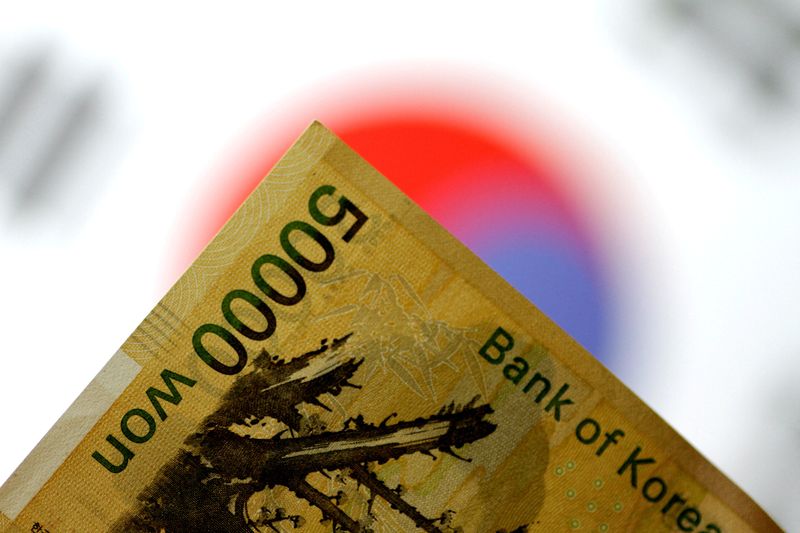By Jihoon Lee and Yena Park
SEOUL (Reuters) -South Korea’s monetary authorities stated on Friday they’d loosen international change rules and permit extra company borrowings overseas, in a bid to defend the gained that’s buying and selling at a 15-year low with improved liquidity.
“Strict regulations restrain the efficiency of foreign exchange management, and there is a need to take into account worsened foreign exchange liquidity conditions after recent events,” the finance ministry stated in a joint assertion with the central financial institution and regulatory businesses.
The South Korean gained dropped on Thursday to its weakest degree in 15 years, weighed down by risk-averse sentiment after the U.S. Federal Reserve’s cautious stance on extra rate of interest cuts, in addition to home political uncertainty stoked by President Yoon Suk Yeol’s short-lived martial legislation order on Dec. 3 and his subsequent impeachment.
In keeping with the assertion, measures embrace permitting corporations to take out loans in foreign exchange and change the funds for the gained, if they’re used for investing in amenities comparable to tools, property and land purchases.
“It is a paradigm shift in foreign exchange policy, from regulating external debt, to inducing more foreign inflows,” a finance ministry official instructed Reuters by cellphone.
Traumatised by capital flight in the course of the 1997-1998 Asian monetary disaster and the 2007-2008 world monetary disaster, South Korea has had a decent grip on international change borrowings even because it has inspired abroad investments.
On the finish of September, the nation held a document excessive of a internet $977.8 billion in monetary property overseas, after turning a internet creditor in 2014.
“We will continue to loosen regulations on capital inflows from the private sector unless it affects external debt or credit ratings in a negative way,” the official, who didn’t want to be recognized as a result of the particular person was not authorised to talk to media, stated.
The ministry additionally stated the ceiling of international change futures contracts could be raised to 75% of capital holdings for native banks and 375% for Seoul branches of international banks, from the present 50% and 250%, respectively.
“They are clearly tools for controlling the weakening pace of the local currency by easing the strain in foreign exchange liquidity,” stated Park Sang-hyun, an economist at iM Securities.

“But, there will be limitations, as unfavourable external conditions, from U.S. policy to China risks, are putting pressure on all emerging currencies, not just the won,” Park stated.
The ministry stated it will implement the measures in a swift method and think about increasing them after reviewing the results.




